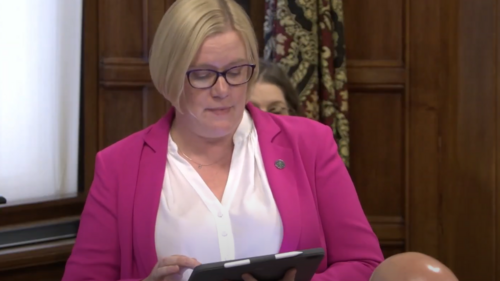Protecting Access to Terrestrial TV

I recently spoke in Parliament about the proposed switch-off of terrestrial TV and the serious risks it poses to millions.
Terrestrial TV is one of the last universal public services. It offers not just entertainment, but access to unbiased news, education, and shared national moments—like the Olympics and the women’s Euros final, watched by over 22 million on the BBC.
Financially, the switchover is troubling. Terrestrial TV uses just 3% of the licence fee, yet moving online could cost £2.1 billion upfront and £1 billion annually. For 4.3 million households relying solely on it, that’s an extra £218 per year—unacceptable when one in four already struggle with communication costs.
It also plays a key role in national resilience—supporting emergency alerts and crisis communications. Unlike internet networks, it’s 99.995% reliable and resistant to cyberattacks and outages.
I support digital innovation, but it must complement—not replace—terrestrial broadcasting. I’ve urged the Government to protect terrestrial TV until at least the mid-2040s. This is about fairness, access, and safeguarding public services for all—not just those who can afford to be online.